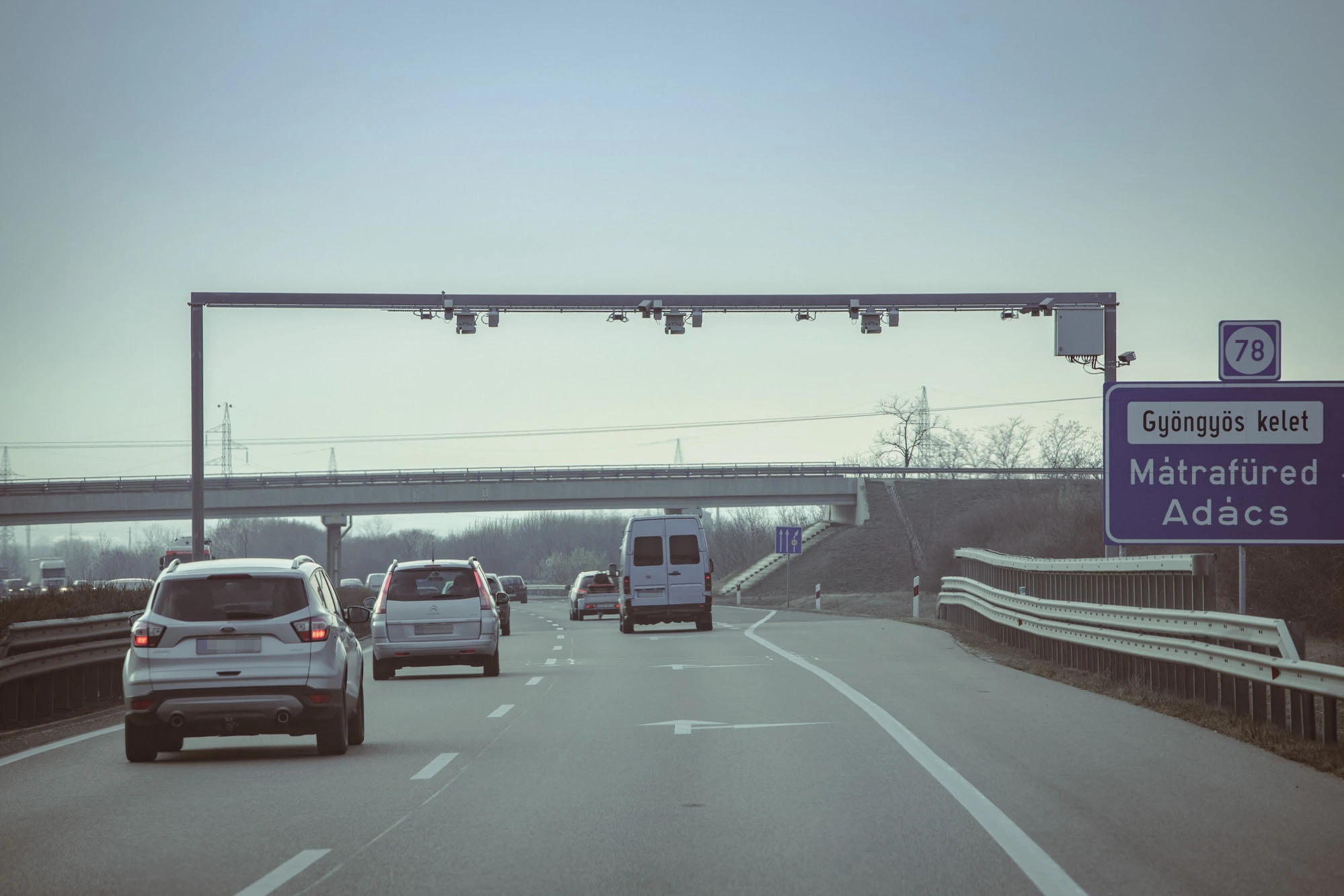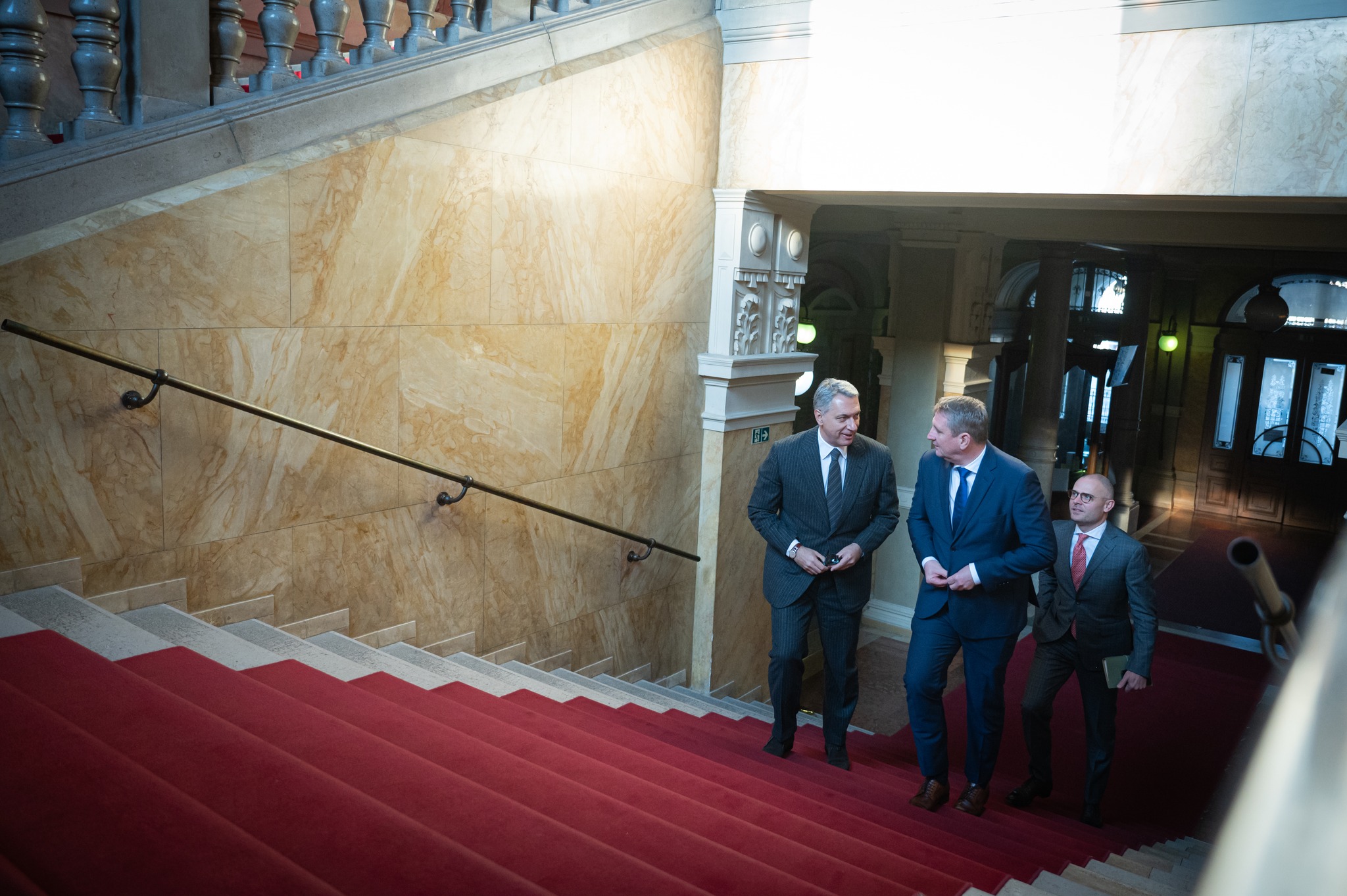Infrastructure upgrades announced: 2 new lanes will be added to busy Hungarian motorway

Construction and Transportation Minister János Lázár presented plans for transport infrastructure upgrades in the area around Eger (NE Hungary) after talks with the city’s mayor on Thursday.
After the meeting with Ákos Vágner, Lázár said that the government had made good on a pledge to connect Eger with the M3 motorway via the M25 expressway with a HUF 67bn investment. He added that the M3 would undergo a HUF 100bn upgrade to finish by the end of the summer of 2025, while a stretch of the motorway, from Road no. 31 to the Gyöngyös exit, would be expanded to six lanes at a cost of HUF 420bn.

Lázár said construction of a 16.5km-long, HUF 100bn city bypass could start, while the existing main road through the city was repaved in 2026.
An east-west rail line connecting to the city could be upgraded at a cost of HUF 135bn, reducing travel time between the capital and Eger by around 20 minutes, he added.
He said ten hectares owned by railway company MAV could be transferred to the city to expand its industrial park which is at capacity.
He added that HUF 1bn would be earmarked to start the renovation of Eger’s landmark castle.
Hungary could expand EV subs to households, says minister
Making subsidies for the purchase of electric vehicles available to households, too, is among the government’s plans, conditional on the fiscal situation, National Economy Minister Marton Nagy said in a presentation at Hungarian Battery Week in Budapest on Thursday. Nagy said a subsidy scheme for retail EV purchases could be introduced from the second half of 2025.
At present, subsidies for EV purchases are available to businesses and sole proprietors. Addressing the departure of the German finance minister, Nagy said Berlin had put strict fiscal policy ahead of its economic development goals and suggested the development could increase the chances for state programmes supporting electromobility targets, infrastructure upgrades and EV purchases.
He pointed to electromobility advances in Asia, especially China, and said BYD and other EV manufacturers were taking advantage of economies of scale and were more competitive than their European peers even without state support. He noted that battery electric vehicle penetration in China could reach 40pc by year-end, while the rate was around 14pc in Europe with the rollback of state subsidy schemes. He added that support for retail and corporate EV purchases in France had lifted sales there.
In China, foreign manufacturers’ share of EV sales has fallen to around half from two-thirds in 2020, while the market share of Chinese EV makers on the continent is growing, he said. Nagy highlighted the lack of a common European Union directive on regulating the electromobility transition, in spite of its strategic importance. He reiterated the Hungarian government’s opposition to the EU’s countervailing duties on imports of Chinese EVs.
Read also:
- Historic expansion set for M1 motorway in Hungary: 2×3 lane widening project launches – read more HERE

